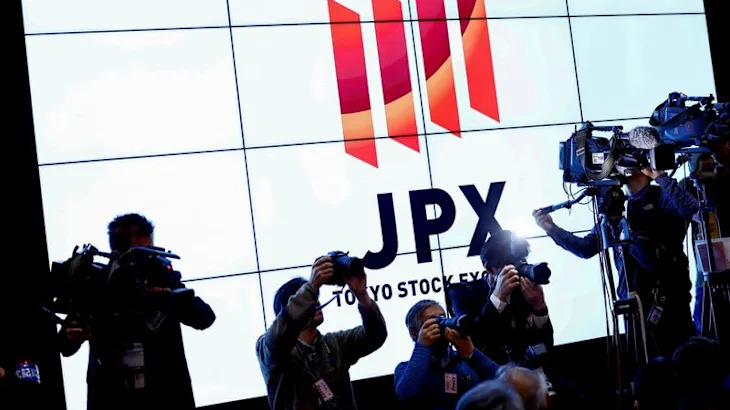
Relief rally fizzles out as markets take stock of Trump's U-turns
By Rae Wee
SINGAPORE (Reuters) -Stocks drifted on Thursday and a rebound in the dollar lost traction as investors tried to sift through the noise from the Trump administration and its fickle stance on tariffs and the Federal Reserve's leadership.
Over the last week, U.S. President Donald Trump rained attacks on Fed Chair Jerome Powell then retracted calls for his resignation, and left investors none the wiser on the ultimate state of tariffs on China despite many headlines around it.
The Trump administration would look at lowering tariffs on imported Chinese goods pending talks with Beijing, a source told Reuters on Wednesday, after a Wall Street Journal report that the White House was considering cutting its tariffs on Chinese imports.
But Treasury Secretary Scott Bessent said later that such a move would not come unilaterally, echoing comments from White House spokesperson Karoline Leavitt.
"I don't think you can ever get used to the sorts of haphazard and flip-flopping that we've seen. It's extreme," said Tony Sycamore, a market analyst at IG. "I think that's Trump - he wants to try and find the right levers to pull, and I don't think he's scared of trying something, and I don't think he's scared of walking it back if it doesn't work."
MSCI's broadest index of Asia-Pacific shares outside Japan fell 0.72%, bucking the trend on Wall Street after stocks advanced on Wednesday on hopes for a de-escalation of Sino-U.S. trade tensions.
U.S. futures pared gains from earlier in the session with Nasdaq futures losing 0.32% and S&P 500 futures down 0.23%. EUROSTOXX 50 futures swung between losses and gains to last trade flat, while FTSE futures eased 0.04%.
The Nikkei ticked up 0.4%.
Japan's tariff negotiator Ryosei Akazawa is making final arrangements to visit the United States from April 30 to hold a second round of talks with his counterpart, two sources familiar with the matter said on Thursday.
In China, the CSI300 blue-chip index was up just 0.06%, while Hong Kong's Hang Seng Index slid more than 1%.
China will firmly support free trade rules and the multilateral trading system, the country's central bank governor said on Wednesday in Washington D.C., state broadcaster CCTV reported.
"Short-term volatility is quite extreme right now... this high volatility is going to sustain, you have elevated volatility going forward, because the underlying foundational rules of the game are changing... the economic world order is changing," said Salman Ahmed, global head of macro and strategic asset allocation at Fidelity International.